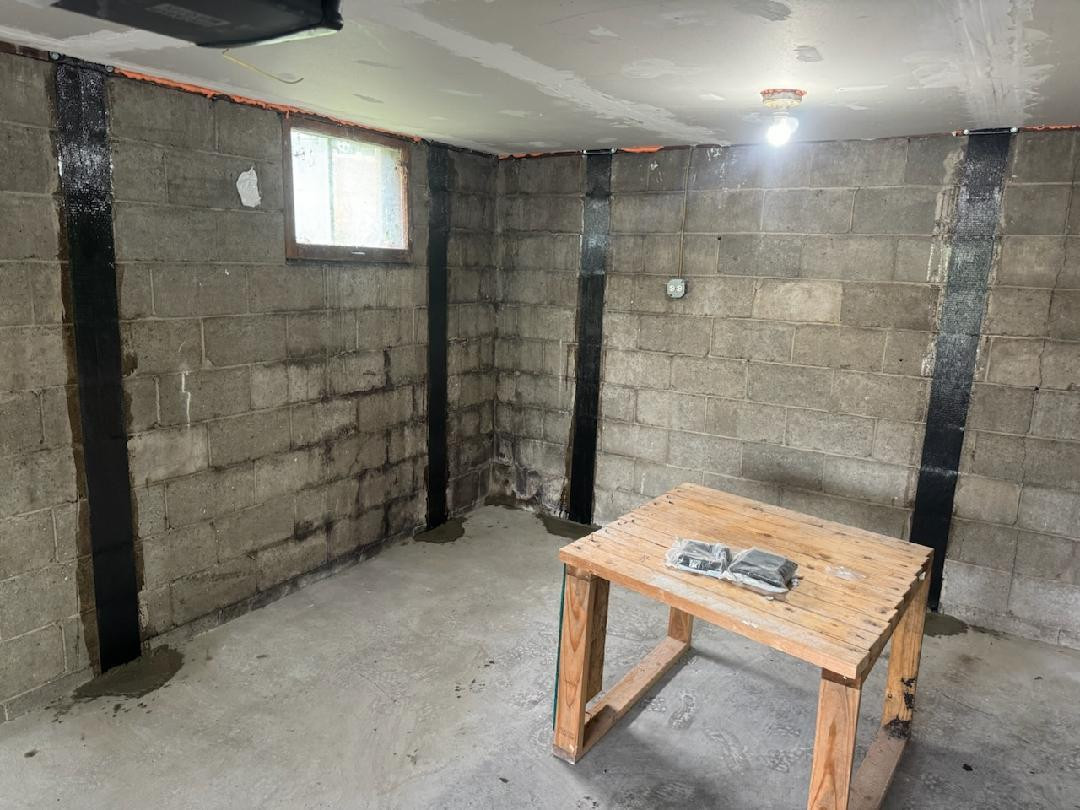In Pittsburgh, PA, there’s a lot that can go wrong when you’re dealing with foundation repair. From misdiagnosing the problem to using the wrong materials, these mistakes can not only cost you money, but they can also compromise the safety of your home. You might be asking, “How do I avoid these pitfalls?” We’re about to explore these common errors and provide some guidance to keep your foundation strong and stable.
Key Takeaways
- Avoid misdiagnosing foundation issues by hiring professional inspectors, preventing unnecessary costs and ensuring safety.
- Don’t ignore minor signs of foundation damage like small cracks or misaligned doors, as they can lead to major problems over time.
- Ensure correct use of repair materials, following manufacturer instructions, to avoid worsening damage and increased repair costs.
- Avoid DIY repairs without the necessary skills, as incorrect fixes may jeopardize your building’s structural integrity.
- Regular maintenance is vital to avoid extensive repairs; routine inspections can catch potential issues before they escalate.
Misdiagnosing the Problem
 A vast majority of homeowners make the mistake of misdiagnosing the problem when it comes to foundation repairs. You might spot a crack in your wall and assume it’s a simple cosmetic issue, but this could be a sign of a deeper, structural problem.
A vast majority of homeowners make the mistake of misdiagnosing the problem when it comes to foundation repairs. You might spot a crack in your wall and assume it’s a simple cosmetic issue, but this could be a sign of a deeper, structural problem.
Don’t let your lack of technical knowledge lead you down a dangerous path. You’re not an expert in foundation assessment, and that’s okay! You don’t have to be. That’s what professionals are for.
Getting a professional consultation is crucial in ensuring your home’s safety and longevity. Professionals have the training and experience to accurately diagnose foundation problems. They can differentiate between a simple aesthetic issue and a severe structural flaw.
So, don’t take a gamble with your home’s foundation. Misdiagnosis can lead to improper fixes, wasted money, and potential hazards down the line.
Instead, invest in a professional foundation assessment. It’ll give you the peace of mind that you’ve accurately identified the problem and can now take the right steps to address it.
Ignoring Small Warning Signs
Often, homeowners overlook the small warning signs of foundation issues. You might dismiss those hairline cracks on your walls or doors that don’t close properly as minor concerns. You may even attribute them to the normal settling of your foundation.
But beware, such signs could be indicating a larger problem that needs immediate attention.
The settling foundation is a common problem in homes, especially those built on expansive clay or improper fill soils. The uneven settling can lead to cracks in the foundation, walls, and floors. If you’re noticing these signs, it’s crucial that you don’t ignore them.
Moreover, water drainage issues are another sign that can easily be overlooked. Pooling water near the foundation, damp basements or crawl spaces, and mold growth are some of the indicators of poor water drainage.
Ignoring these can lead to serious foundation damage.
Incorrect Use of Repair Materials
Choosing the right materials for foundation repair is crucial, but it’s equally important to use them correctly. Incorrect use of repair materials can worsen the damage instead of fixing it, leading to more extensive, costly repairs down the line. It’s a common mistake that can have significant consequences.
Material selection and repair techniques are essential factors in successful foundation repair. However, even the best materials can fail if not used properly.
Here are three common pitfalls to avoid:
- Using the wrong material for the job: Not all repair materials are suited for every type of damage. Some are better for sealing cracks, while others are meant for reinforcing weakened structures. It’s vital to understand the specific needs of your repair.
- Applying materials incorrectly: Even if you’ve chosen the right material, it won’t work as expected if applied improperly. This could mean not preparing the surface correctly, not allowing enough drying time, or applying the wrong amount.
- Ignoring manufacturer instructions: Manufacturers provide guidelines for a reason. Not following these can lead to ineffective repairs and may void any warranties.
DIY Without Necessary Skills
While the thought of fixing your own foundation may be tempting, especially if you’re handy around the house, it can quickly become a recipe for disaster if you’re not equipped with the right skills.
Though it may seem straightforward, foundation repair is a complex task that requires a deep understanding of foundation techniques and the ability to conduct a thorough structural assessment.
Remember, your home’s foundation is its backbone. If you get it wrong, you’re risking the structural integrity of the entire building. It’s not just about applying some concrete or mortar. You need to understand the underlying problems and how to address them effectively.
For instance, foundation techniques vary based on the type of soil, the weight of the building, and the extent of the damage.
A structural assessment, on the other hand, requires you to identify the signs of foundation damage, determine its cause, and evaluate the necessary repairs.
Neglecting Regular Maintenance
Think of your house as a living, breathing entity that needs regular check-ups to stay healthy.
Just like you wouldn’t ignore your own health, you shouldn’t neglect your home’s maintenance schedules, especially when it comes to foundation inspections.
Overlooking regular maintenance is a common mistake that homeowners in Pittsburgh, make, and it can lead to serious foundation issues down the road.
Remember, it’s easier to prevent problems than to deal with them later on.
So, here are three critical points you should never ignore:
- Regular Foundation Inspections: Don’t wait for visible signs of damage to get your foundation inspected. Routine inspections can help identify potential issues before they become major problems.
- Maintenance Schedules: Stick to a maintenance schedule. It’s not just about inspection; it’s about taking preventive measures like proper drainage, controlling vegetation around your house, and more.
- Prompt Repairs: If your foundation inspection reveals any issues, don’t delay repairs. Small issues can quickly become big headaches if not addressed immediately.
Don’t let neglect lead to extensive, costly repairs.
Keep your home’s foundation strong and sturdy through regular maintenance and inspections.
Your house, and your wallet, will thank you.
Frequently Asked Questions
What Factors Determine the Cost of Foundation Repair in Pittsburgh, PA?
 The cost of foundation repair in your city depends on several factors.
The cost of foundation repair in your city depends on several factors.
You’ve got to consider the type of foundation you’re dealing with – is it slab, pier and beam, or block and base?
Then, there’s the repair method. Some methods are more expensive than others.
Don’t forget about the extent of the damage. More severe issues cost more to fix.
Always get a professional evaluation to avoid any costly mistakes.
Can Insurance Cover the Costs of Foundation Repair in Pittsburgh, PA?
Whether insurance covers foundation repair costs in your city depends on your policy.
Most standard homeowner’s insurance policies don’t cover foundation repairs. It’s a common mistake to assume they do. Always check your policy’s specifics.
If it doesn’t offer repair coverage, consider adding a rider for this. It’s better you’re aware and prepared, rather than facing hefty repair bills out of pocket.
How Long Does a Typical Foundation Repair Process Take in Pittsburgh, PA?
You’re likely wondering how long a typical foundation repair process might take.
It’s not a quick fix and timelines can vary. The project duration often depends on the severity of the damage.
Minor repairs could be completed in a few days, but extensive damage might require several weeks.
It’s essential not to rush, as improper or hurried repairs can lead to further issues.
What Are the Signs of a Reliable Foundation Repair Contractor in Pittsburgh, PA?
When you’re looking for a reliable foundation repair contractor in your city, check their qualifications first. They should have proper licensing and insurance.
Don’t forget to look at customer reviews too. They’ll show you if past clients were satisfied with their work.
If a contractor’s got good credentials and positive feedback, you’re on the right track.
Avoid contractors who can’t provide these details. It’s a common mistake that can cost you in the end.
Are There Specific Building Codes to Follow for Foundation Repair in Pittsburgh, PA?
Yes, there are specific building codes you’ll need to follow for foundation repair in your city.
It’s crucial to adhere to these regulations to ensure the stability and safety of your building.
You’ll also require local permits before commencing work.
Not following these can lead to hefty fines or even legal issues.
Always double-check the local building regulations and secure necessary permits to avoid these common mistakes.
Conclusion
Don’t let these common mistakes jeopardize your home’s foundation. Always consult a professional if you’re unsure about the issue. Don’t ignore small warning signs, they could signal bigger problems. Avoid DIY repairs if you lack the skills, and never use incorrect materials. Remember, regular maintenance is key. By dodging these pitfalls, you’ll ensure the safety and stability of your home in Pittsburgh, Foundation repair doesn’t have to be daunting if you avoid these common errors.




